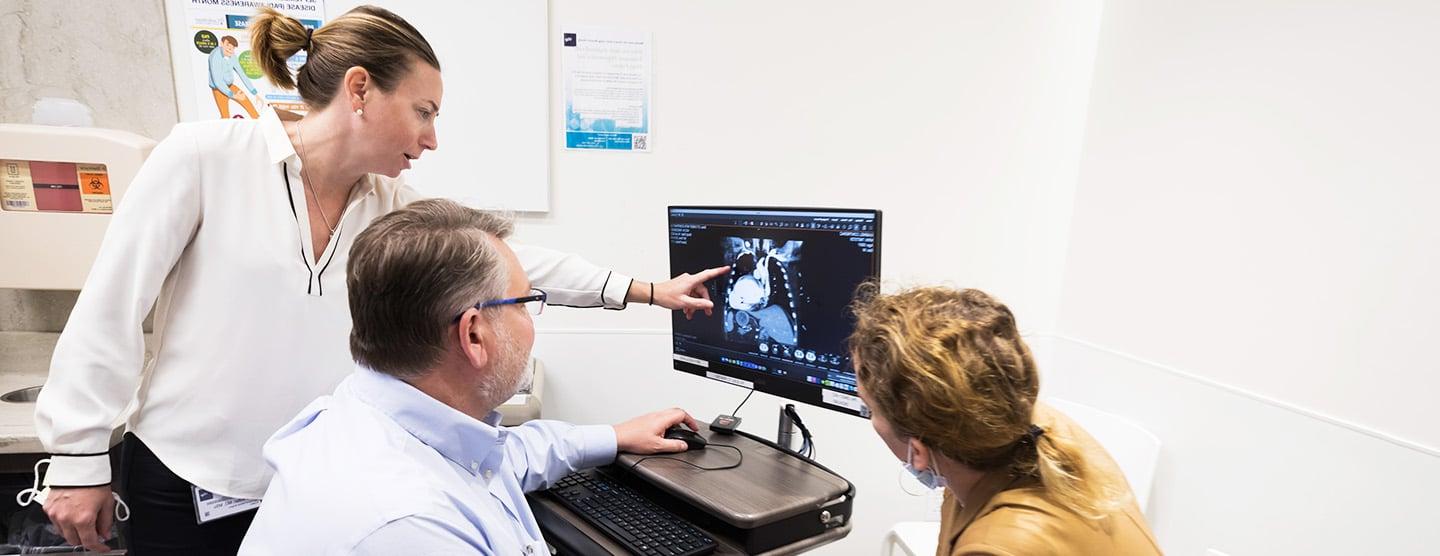
Heart Transplant Program
The UCSF Heart Transplant Program has performed more than 400 transplants since its first transplant in March 1989.
Heart failure affects nearly 5 million Americans and causes or contributes to as many as a quarter of a million deaths each year. It's a progressive condition in which the heart muscle weakens and gradually loses its ability to pump enough blood to supply the body.
More people are surviving heart attacks but are then left with weakened hearts, so heart failure is the only major cardiovascular disorder on the rise. Between 400,000 and 700,000 new cases are reported every year.
Heart transplants are the most advanced treatment for end-stage heart disease, which is the final phase of heart disease when no other effective treatment remains.
Doctor referral required
Our locations
Our team
Explore what we do
UCSF's 35 years of heart transplant experience
A leader in treating advanced heart failure, UCSF performed nearly 80 heart transplants in 2023. Learn about our team's commitment to cutting-edge technologies and techniques.
Clinical trials
The EMPOWER Trial - The Carillon Mitral Contour System® in Treating Heart Failure With at Least...
Freedom from a composite of major adverse events (defined as Device Embolization, Vessel Erosion, Cardiac Perforation, and occurrence of cardiac surgery or percutaneous coronary intervention) in the Intervention group is greater t...
Recruiting
ALT-FLOW II Trial of the Edwards APTURE Transcatheter Shunt System
Shunt implant safety: proportion of patients in the APTURE shunt group without any serious device or procedure-related (CEC adjudicated) complications (i.e., Major Adverse Cardiovascular, Cerebrovascular, and Renal Events [MACCRE]...
Recruiting
Levothyroxine Supplementation for Heart Transplant Recipients
Measured using the vasoactive-inotropic score (VIS) scale. VIS calculation: dopamine dose (μg/kg/min) + dobutamine dose (μg/kg/min) + 100 × epinephrine dose (μg/kg/min) + 10 × milrinone dose (μg/kg/min) + 10 000 × vasopressin dos...
Recruiting
AN INTERNATIONAL, OBSERVATIONAL, BLINDED STUDY TO ASSESS THE PERFORMANCE OF THE CORDIO HEARO SY...
Until the end of the study, each participant will be assigned to one of the following event outcomes: 1. Having at least one protocol-defined Heart Failure Event (HFE) in the CORE period 2. Having no Heart Failure Event (HFE...
Recruiting
Awards & recognition
-

Among the top hospitals in the nation
-

One of the nation's best for heart & vascular surgery
-

Rated high-performing hospital for heart failure
Support services
Plan your visit
What to Bring
- If possible, please send in advance CT scans, chest X-rays, all test results and all other images for review. To ensure a comprehensive first visit, please bring copies of these medical records to your appointment as well.
- Health insurance card
- Insurance authorization, if required
- Doctor's referral, if required
- List of questions you may have
- Device or paper for taking notes
Related clinics
Our research initiatives
-

UCSF Division of Cardiology Research
Researchers at the UCSF Division of Cardiology investigate all aspects of heart disorders, from how disease develops to who is most at risk, with an emphasis on translating key findings into more effective care.






























